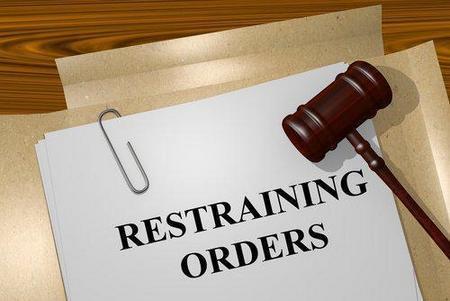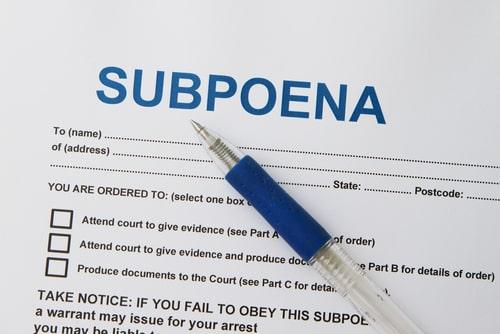Recent Blog Posts
Four Ways to Hurt Your Divorce Case
 When you are working through a divorce, there is the right way to do things and the wrong way to do things. When you do things the wrong way, you run the chance of hurting your case and potentially losing money, property, or time and parenting duties with your child. If you are ever unsure about how to handle a situation that arises or conduct yourself in or outside of court, ask your attorney for guidance. As a preliminary framework, though, keep certain tips in mind to help your own divorce case.
When you are working through a divorce, there is the right way to do things and the wrong way to do things. When you do things the wrong way, you run the chance of hurting your case and potentially losing money, property, or time and parenting duties with your child. If you are ever unsure about how to handle a situation that arises or conduct yourself in or outside of court, ask your attorney for guidance. As a preliminary framework, though, keep certain tips in mind to help your own divorce case.
Ignoring Court Orders
A representative of the court will contact you at various points during the divorce process. You might be summoned to appear in court, to give a deposition, or to work with a child custody evaluator to help the court determine an appropriate parenting time schedule for your child. In any of these scenarios, respond promptly to the request and give the court the information it asks for. Failure to comply with the court's orders can count against you in further dealings with the court, such as petitioning to modify your parenting time agreement.
Equitable Distribution: Protecting Professional Practices in Divorce
 If you are a doctor, an attorney, an accountant, a therapist, or any other type of professional that typically works within an individual or group professional practice, you need to consider how your earnings from this practice and interest in it may be divided between you and your spouse during your divorce. Working at a professional practice is not the same as working for an employer, nor is it necessarily the same as working as an independent contractor. You are running a business, either on your own or with partners.
If you are a doctor, an attorney, an accountant, a therapist, or any other type of professional that typically works within an individual or group professional practice, you need to consider how your earnings from this practice and interest in it may be divided between you and your spouse during your divorce. Working at a professional practice is not the same as working for an employer, nor is it necessarily the same as working as an independent contractor. You are running a business, either on your own or with partners.
It is important that you work with a divorce attorney who has experience handling such professionals' divorces to ensure that your interests in your practice are protected. Keep the following in mind as you enter a relationship with your attorney and begin the process of dissolving your marriage.
Your Practice Is a Marital Asset
Unless you have a prenuptial agreement in place that states that your professional practice or place within one may not be divided in a divorce, your share of the professional practice is subject to Illinois' equitable distribution laws for property division. This means that the court will examine how the money earned through the practice is spent in your household and the contribution that you and your spouse both make to it. Your spouse's contribution does not necessarily have to mean he or she works at the practice as well – if he or she took on less-demanding work to allow you to devote yourself fully to the practice, this may be considered.
Protecting Your Credit during a Divorce
 Getting a divorce can have a significant effect on all areas of your life. Your daily schedule, your relationship with your children and other relatives, and your living situation will all likely be different after your divorce is finalized. If you are not careful, your credit score can also change dramatically, and not in a good way. Divorces are expensive, especially when they are contentious. When a divorcing couple does not have an amicable relationship and thus cannot work together to make financially sound decisions while the divorce is pending, it can be very easy for unpaid bills to pile up and haphazard financial decisions to be made. Work with your spouse and your divorce attorney to maintain control over your finances throughout the divorce process.
Getting a divorce can have a significant effect on all areas of your life. Your daily schedule, your relationship with your children and other relatives, and your living situation will all likely be different after your divorce is finalized. If you are not careful, your credit score can also change dramatically, and not in a good way. Divorces are expensive, especially when they are contentious. When a divorcing couple does not have an amicable relationship and thus cannot work together to make financially sound decisions while the divorce is pending, it can be very easy for unpaid bills to pile up and haphazard financial decisions to be made. Work with your spouse and your divorce attorney to maintain control over your finances throughout the divorce process.
Determine Your Joint Bills and Make Sure They Are Paid
This is an important issue for divorcing couples. Your joint bills might include your utilities, your mortgage or rent, your credit cards, and your cell phone bills. If both of your names are on these bills, both you and your spouse are responsible for making sure they are paid every month. Failing to pay a household bill, whether due to vindictiveness toward a former partner or simply forgetting to amid the demands of a pending divorce, can hurt your credit score. Make sure all of your bills are paid, even if your spouse is not holding up his or her financial portion of this responsibility – worry about his or her failure to pay later. Protect yourself from credit consequences now.
When a Restraining Order Becomes Necessary during a Divorce
 Divorces can be messy. In many cases, the divorce process brings out the worst in each partner, pushing him or her to become angry, vindictive, and frightened about what will happen in the future with his or her property and relationship with the couple's children. This fright can turn to aggression, which can manifest itself as antagonism aimed at the other spouse and attempts to harass him or her into giving in to the aggressive partner's demands.
Divorces can be messy. In many cases, the divorce process brings out the worst in each partner, pushing him or her to become angry, vindictive, and frightened about what will happen in the future with his or her property and relationship with the couple's children. This fright can turn to aggression, which can manifest itself as antagonism aimed at the other spouse and attempts to harass him or her into giving in to the aggressive partner's demands.
This is not a healthy way to end a marriage. In fact, it can be the foundation of a very difficult life for an individual following his divorce because if this behavior is not nipped early, it can lead to a life of fear, resentment, and a much smaller share of the couple's marital assets than the victim was entitled to receive.
Document Everything
This is the most important action you can take if you are a victim because without adequate documentation of your spouse's actions, it can be difficult or even impossible for the court to put a stop to them. Save threatening emails, text messages, and voicemails and document any face-to-face aggression or threats you receive.
Modification of Parenting Time Schedule
 There are many reasons why an individual may be determined to be a poor role model for his or her child or that a relationship between him or her and the child is not in the child's best interest. Mental health problems, addiction, or involvement with a harmful activity or individual can tarnish a parent's image in the court's eyes. But these issues do not exist forever. When a parent who was previously found to have a negative influence in his or her child's life turns his or her situation around, he or she may seek to have his or her parenting time increased. Work with an experienced family attorney to prove that your circumstances have changed and seek a modification to your parenting time order.
There are many reasons why an individual may be determined to be a poor role model for his or her child or that a relationship between him or her and the child is not in the child's best interest. Mental health problems, addiction, or involvement with a harmful activity or individual can tarnish a parent's image in the court's eyes. But these issues do not exist forever. When a parent who was previously found to have a negative influence in his or her child's life turns his or her situation around, he or she may seek to have his or her parenting time increased. Work with an experienced family attorney to prove that your circumstances have changed and seek a modification to your parenting time order.
Examples of How a Parent Can Get Help
If the court only grants you limited time with your child because of a factor or circumstance in your life that could potentially be harmful to your child's health or safety, work with your attorney to determine how you can eliminate this factor. Some examples of improvement you can seek include:
Fitness of a Parent in Child Custody Cases
 Fitness to parent a child is critical to having the court assign you a favorable level of parenting time or parenting responsibilities following a divorce. Parenting issues like child support, parenting time, and parenting responsibilities are key issues in family law and when determining appropriate rulings for a family, the court scrutinizes both parents and their households to create a post-divorce arrangement that is in the child's best interest.
Fitness to parent a child is critical to having the court assign you a favorable level of parenting time or parenting responsibilities following a divorce. Parenting issues like child support, parenting time, and parenting responsibilities are key issues in family law and when determining appropriate rulings for a family, the court scrutinizes both parents and their households to create a post-divorce arrangement that is in the child's best interest.
You might encounter a guardian ad litem during your divorce, which is a neutral third party who interviews parents and children to determine the best living situation for the child. You might also be subject to accusations of poor parenting or poor character from your former spouse in court. In any situation where your parenting skills are questioned, do not become defensive. Instead, show that you are a qualified parent by demonstrating the following.
Show that You Can Support Your Child
I Have Been Asked to Create a Safety Plan. What Does This Mean?
 As a parent, one of your greatest goals in life is to keep your child safe. Family attorneys and the Illinois Department of Children & Family Services (DCFS) share this goal. Sometimes, keeping a child safe requires DCFS to remove a child from his or her parent's home or create a set of rules that the parent must follow to prevent the child from being harmed by his or her parent or any other individual present in that parent's home.
As a parent, one of your greatest goals in life is to keep your child safe. Family attorneys and the Illinois Department of Children & Family Services (DCFS) share this goal. Sometimes, keeping a child safe requires DCFS to remove a child from his or her parent's home or create a set of rules that the parent must follow to prevent the child from being harmed by his or her parent or any other individual present in that parent's home.
You might be asked to work with DCFS to create a safety plan for your child. Do not panic or become combative with the party asking you to agree to this plan – it is not an indictment against you as a parent, but a way DCFS can work to protect your child from a potentially-harmful situation. Work with your attorney and DCFS to create a safety plan that works for your child and you.
What Is a Safety Plan?
A safety plan is a set of actions that a child is to take if he or she feels he or she is in danger of harm. If DCFS determines during its investigation that a child cannot successfully carry out the actions of a safety plan, it might opt to remove the child from a household altogether. Examples of provisions that may be included in a safety plan include:
My Teen Is Having a Baby. What Are My Legal Obligations to the Baby?
 The prospect of a teenage son or daughter becoming a parent raises questions for an entire family. Where will the baby live? How will the baby's parents support him or her? And for many, who makes important financial, medical, and lifestyle decisions on the infant's behalf when his or her parents are minors themselves? Child custody decisions, whether they are in regard to your child or your grandchild, can be complicated.
The prospect of a teenage son or daughter becoming a parent raises questions for an entire family. Where will the baby live? How will the baby's parents support him or her? And for many, who makes important financial, medical, and lifestyle decisions on the infant's behalf when his or her parents are minors themselves? Child custody decisions, whether they are in regard to your child or your grandchild, can be complicated.
Even Teen Parents Have Full Parental Rights for Their Children Unless These Rights Are Terminated by the Court
Even if your child is under the age of 18 and unable to make legal decisions for him- or herself, he or she has full parental rights to his or her child. These rights include the right to consent to medical care throughout the pregnancy and birth, the right to make medical decisions for the baby after it is born.
If the baby's parents do not live together, either may go to the court to seek a custody arrangement. Like all other custody arrangements, the court determines the best place for the baby to live according to multiple factors, such as:
What Is a Subpoena?
 A subpoena is a written order for an individual to appear in court. In cases where the divorcing partners can cooperate with each other, subpoenas are often not necessary. But when the parties cannot get along, one party refuses to obey the court's orders, or one party is suspected of hiding assets from the other, the court may use a subpoena to require a divorcing individual to come to hearings and comply with its other requirements.
A subpoena is a written order for an individual to appear in court. In cases where the divorcing partners can cooperate with each other, subpoenas are often not necessary. But when the parties cannot get along, one party refuses to obey the court's orders, or one party is suspected of hiding assets from the other, the court may use a subpoena to require a divorcing individual to come to hearings and comply with its other requirements.
Receiving a subpoena can be confusing. If you are currently going through a divorce and you have received an order to appear, or your partner is not cooperating with the court and your divorce is becoming drawn out and draining your resources, talk about your subpoena and any related divorce issues with an experienced divorce attorney. A divorce consists of many elements and it can be difficult for an individual to keep track of each piece.
What Can a Subpoena Do?
A subpoena is used to call an individual to court. It can be used to require one of the divorcing partners to court or it can be used to require another individual to come to court to provide a testimony as part of the divorce process. For example, the guardian ad litem handling the couple's child custody determination might be subpoenaed to appear in court and provide his or her report of the couple's parenting abilities, resources, and his or her recommendation regarding their children's custody. Other individuals who might be subpoenaed can include those less closely involved in a couple's divorce, such as the couple's child's teacher to verify an allegation that one of the parents was three hours late picking the child up or the child's pediatrician to discuss how a parent handles the child's healthcare.
Parenting While Incarcerated in Illinois
 Parenting while incarcerated may seem like an impossibility. When a parent goes to prison, finding an appropriate custody situation for his or her child is a priority. In some cases, the child's other parent receives full custody of the child. In others, another living arrangement must be determined.
Parenting while incarcerated may seem like an impossibility. When a parent goes to prison, finding an appropriate custody situation for his or her child is a priority. In some cases, the child's other parent receives full custody of the child. In others, another living arrangement must be determined.
If you have been charged with a criminal offense and you are facing jail time, speak with an experienced family attorney about how your potential incarceration can affect your child and his or her current custody agreement. He or she can answer any questions you have about the possibility of spending time in jail and help you and your family develop a plan for custody and visitation if the need arises.
Pregnancy and Childbirth in Prison
Illinois is one of only four states to prohibit the shackling of female inmates during pregnancy and childbirth. Babies born to mothers who have access to Illinois' prison nursery programs may stay with their mothers until they reach 18 months of age. Otherwise, the infant may be given to his or her father or, if the father is not present or unfit to be a parent, with another relative. The child's mother may name a relative a short-term guardian for her child. This individual is given custody of the child for up to a year while the mother completes her jail term.











